So… this is it?
The Battle of Winterfell, the epic Game of Thrones showdown between the living and the dead that last night’s Season 8 episode, “The Long Night,” has been building to for eight years — or, if you’re a book fan, for over 20 years — is over… just like that?
On a weekend where Avengers: Endgame paid off 11 years of Marvel movie magic with an epically satisfying conclusion, it’s ironic that Game of Thrones botched its own eagerly-awaited climax.
RELATED POST:
How “The Bells” Explains Game of Thrones’s Theme While Failing Its Characters
To be fair, “The Long Night” started out strong before limping to a muddied, confusing, and frustrating end. Unfortunately, the same could be said about Game of Thrones itself. HBO’s adaptation of George R. R. Martin’s still-unfinished novels has only has three episodes left to overcome its recent thematic troubles and sloppy writing and deliver a satisfying conclusion.
But the chances of that final payoff feeling truly earned are starting to seem more impossible by the week.
Here’s what worked well in “The Long Night,” where it went wrong, and why it’s so disappointing.
The Best Parts of “The Long Night” at Winterfell
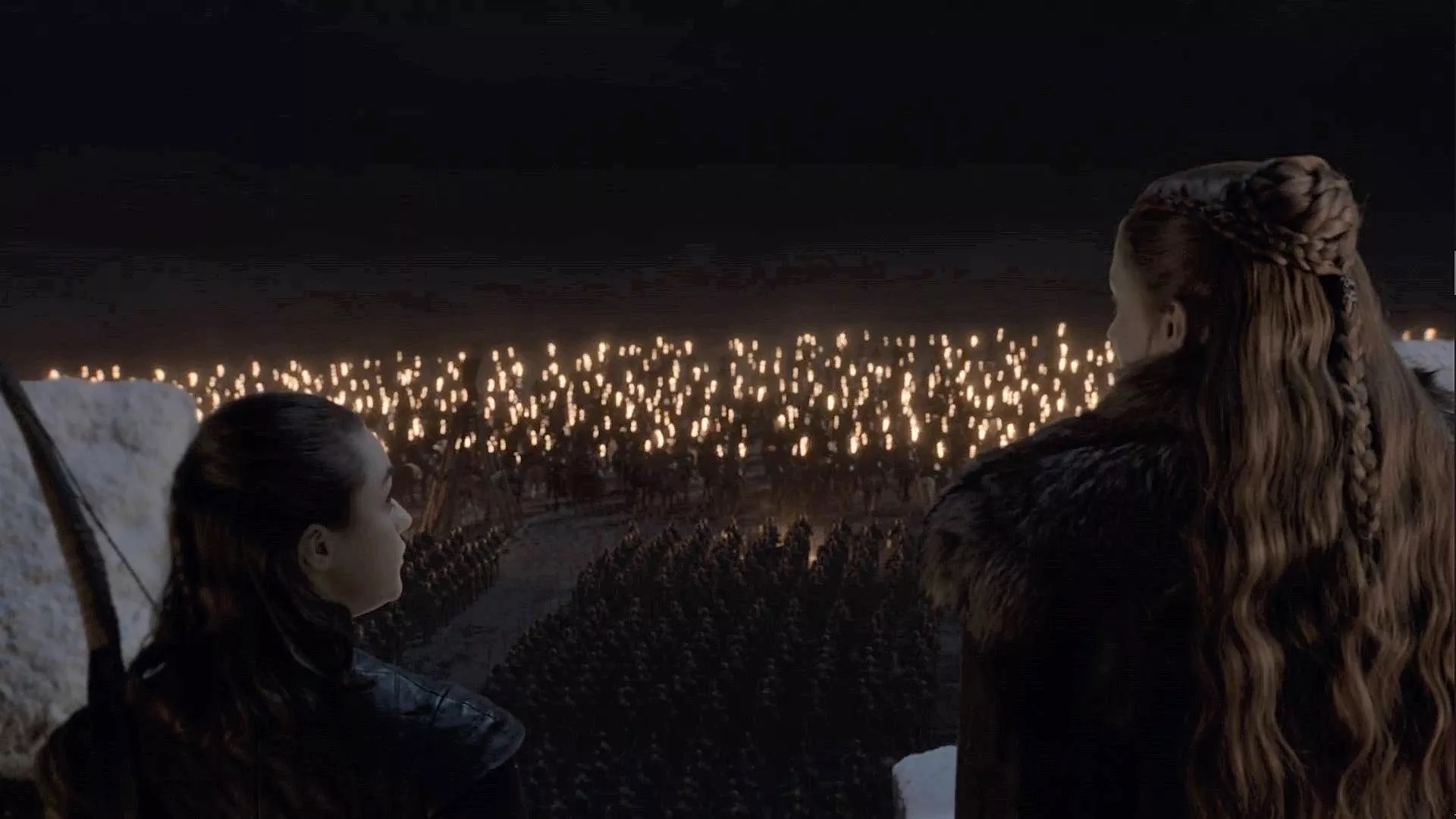
First, the good news.
In the lead-up to the Battle of Winterfell, all the pieces seemed to be in place for a tense, dramatic, emotional, and rewarding clash between the living and the dead.
Subplots were wrapped up. Stakes were clear. Tensions were high.
We understood the geography of Winterfell. We knew which characters were located where. We knew the odds were against them. And we knew what we didn’t know, which is how large the army of the undead actually was, and what the Night King was actually planning to do.
We also knew that our heroes had a plan — and, it turns out, a backup plan — to stop the Night King, the white walkers, his horde of undead wights, and his zombie ice dragon Viserion.
Sure, maybe it wasn’t the smartest plan, but these aren’t exactly the most successful military tacticians in the history of Westeros. After nearly getting a dozen people killed hunting for a single wight north of the wall, or squandering an armada of ships on an ill-fated attack on Casterly Rock, ideas like digging a trench around Winterfell and having a fallback plan seems nearly Patton-esque by comparison.
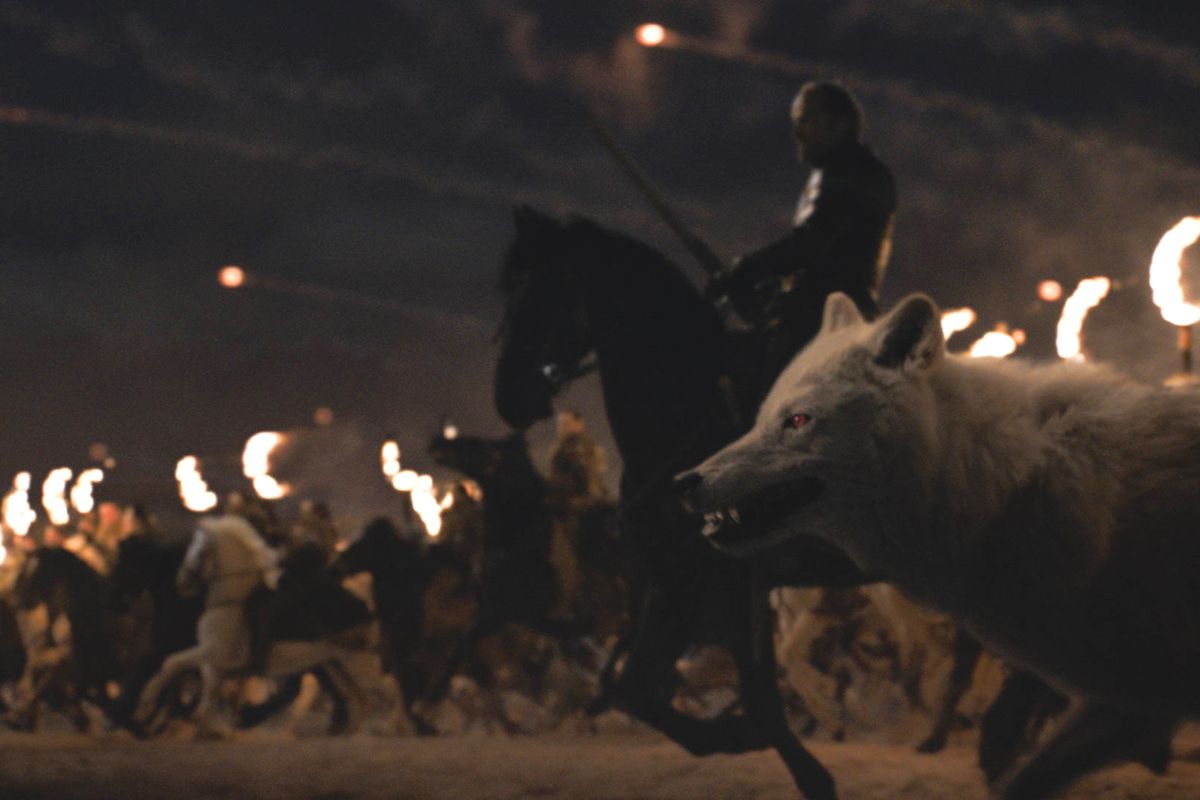
As a piece of storytelling, the episode’s first half does some difficult things very well.
For example, arming the Dothraki with flaming arakhs serves three narrative purposes: it gives the heroes (and the audience) renewed hope via this unexpected power-up bestowed by the red witch, Melisandre. It also provides a natural light source as the Dothraki charge into the darkness of battle which establishes the intimidating size of their army in the night. And it depicts the horror of the battle itself, as those flames are quickly snuffed out by the even larger army of wights that swallows up the light of hope itself.
This pendulum swing between higher and lower expectations is critical to the episode’s emotional success. Can’t see your enemy? Here’s some flames! The undead overwhelmed your cavalry? Here’s some dragons! Those dragons have been blown off the battlefield by a wall of ice and mist? Here’s a flaming trench! Your trench has been breached by a bridge of wights? Uh…
Well, now we’re out of options.
And this is where things get messy, both for the episode’s pacing and its payoff.
Tales from the Crypt(s of Winterfell)
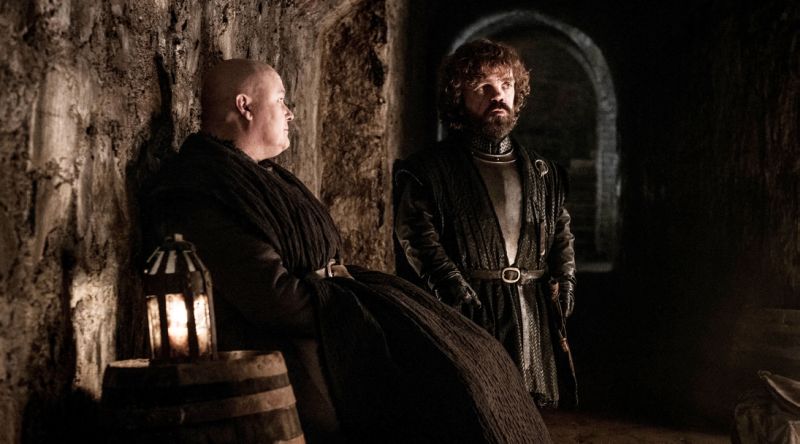
Once the undead storm the gates of Winterfell, the battle — and the plot — falls apart.
Yes, we still have several different storylines to crosscut between, including:
- Jon and Daenerys trying to beat the Night King in a dragon joust
- Theon defending Bran — the Night King’s target — in the Godswood
- Arya trying to evade the wights in the castle
- Beric and the Hound trying to find and protect Arya
- Sansa, Tyrion, Varys, Missandei, and Gilly hiding in the crypts
- Jaime, Brienne, Podrick, Tormund, Gendry, and Grey Worm trying to hold the line against the flood of wights storming the battlements
- Davos doing… uh… we have no idea, we don’t see him for like half an hour
- Sam doing absolutely nothing to help anyone, at all, in any way
The smaller problem here is that half of these storylines get way more screentime than they need while the other half are a dim, shaky, monochromatic mess to keep track of, all of which bogs down the pacing, induces monotony, and dulls the stakes.
The bigger problem here is that only one of these storylines has a payoff that could be considered even halfway satisfying, even though all the signs are pointing toward something even more profound.
How Do You Subvert Already-Subverted Audience Expectations? Well…
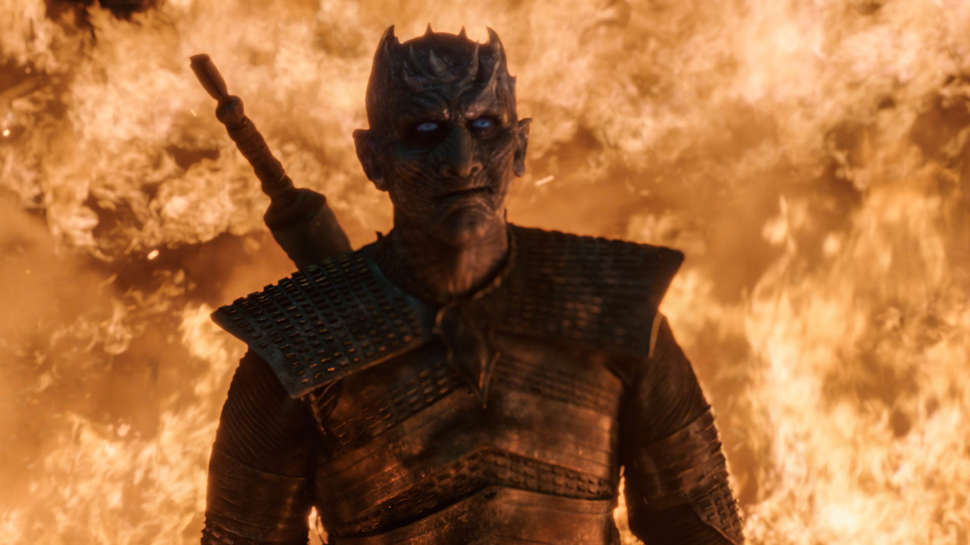
When the Night King survives Daenerys yelling “dracarys!” and showering him with Drogon’s dragonfire, that’s a power move. It’s a reminder that this villain won’t go down easily.
But when Arya kills the Night King 15 minutes later, it’s only surprising in one way.
For eight years, the show seemed to be setting up a showdown between Jon Snow and the Night King to decide the fate of humanity… but in the end, it’s Jon’s little sister who saves the day.
Unexpected? Maybe, although Arya has been a murder machine for half the show’s existence.
Satisfying? Sure, at a character level and as a payoff to the episode’s only real through-line — hey, at least my man Beric died for a reason, unlike Dolorous Edd, Lyanna Mormont, or all those nameless extras.
But therein lies the problem.
When people complain about this episode, it’s often because “not enough characters died.”
That’s an oversimplified statement.
While I think a lot of fans did want to see a larger number of popular characters die during the battle of Winterfell — and yes, that is a weird, ghoulish, and semi-heartless thing to say, which is why it seems so childish on the surface — it’s not necessarily the deaths we were hoping to see.
It’s the reason for the deaths — not just narratively, but thematically.
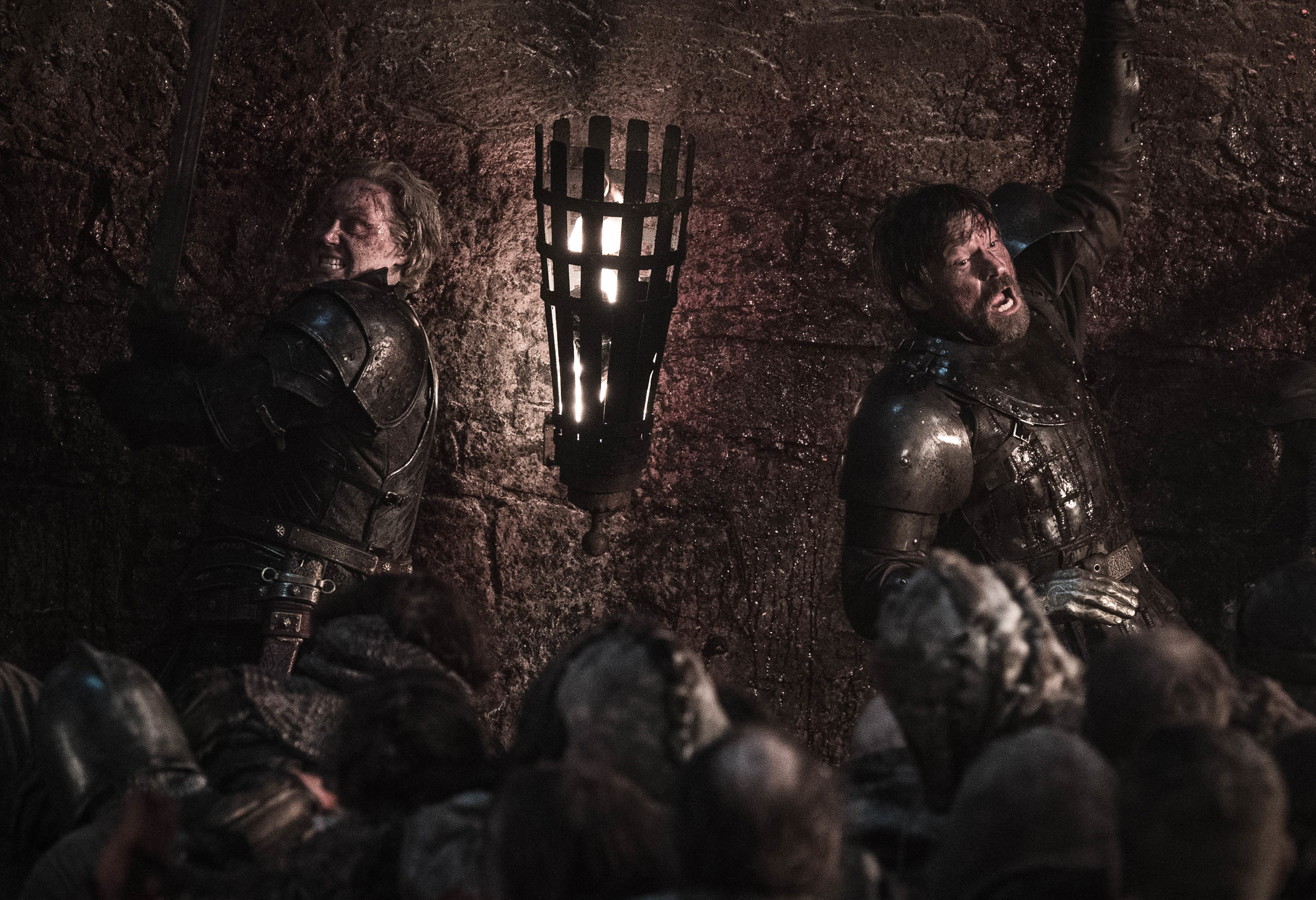
Because when the Night King raises the fallen to replenish his own troops…
When Beric sacrifices himself to buy Arya and the Hound a few more minutes…
When Drogon is getting eaten alive by a swarm of wights and he flies off in terror, stranding Dany alone and unarmed on the battlefield…
When Theon runs out of arrows in the Godswood and is surrounded by the undead…
When Jon is staggering through Winterfell, desperately trying to find the Night King, only to be trapped by a fire-breathing zombie dragon ahead of him and a wall of wights behind…
And when the fight at the battlements devolves into such a muddy red splotch that we can’t even see our heroes anymore because they’re literally being overrun by the endlessly overwhelming army of the dead, Game of Thrones seems to be setting us up for a crushingly massive defeat.
A defeat would have been in line with the show’s true spirit — or at least, what we’ve been telling ourselves the show’s true spirit is ever since it shocked us by killing its protagonist in the first season, its new hero a few seasons later, its arch-villain shortly after that, and half of King’s Landing at the end of Season Six.
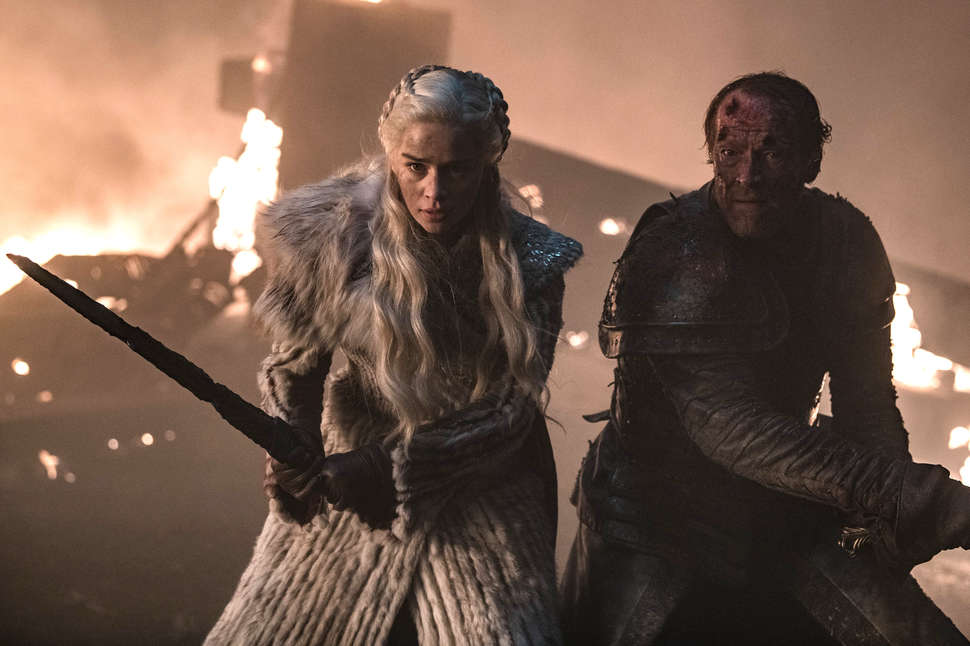
“This is a show where the good guys don’t always win,” we caution.
“This is a show where anyone can die at any time,” we warn.
“The politics and pettiness of all the humans vying for power are all a just distraction from the show’s real threat from the undead,” we remind ourselves, ever since the very first scene of the first episode beat it into our brains that Winter Is Coming.
Knowing all this, we were braced for the worst.
What we got instead was something that seems to defy everything Game of Thrones stands for:
The Battle of Winterfell has a happy ending.
The Greatest Trick the Devil Ever Pulled…
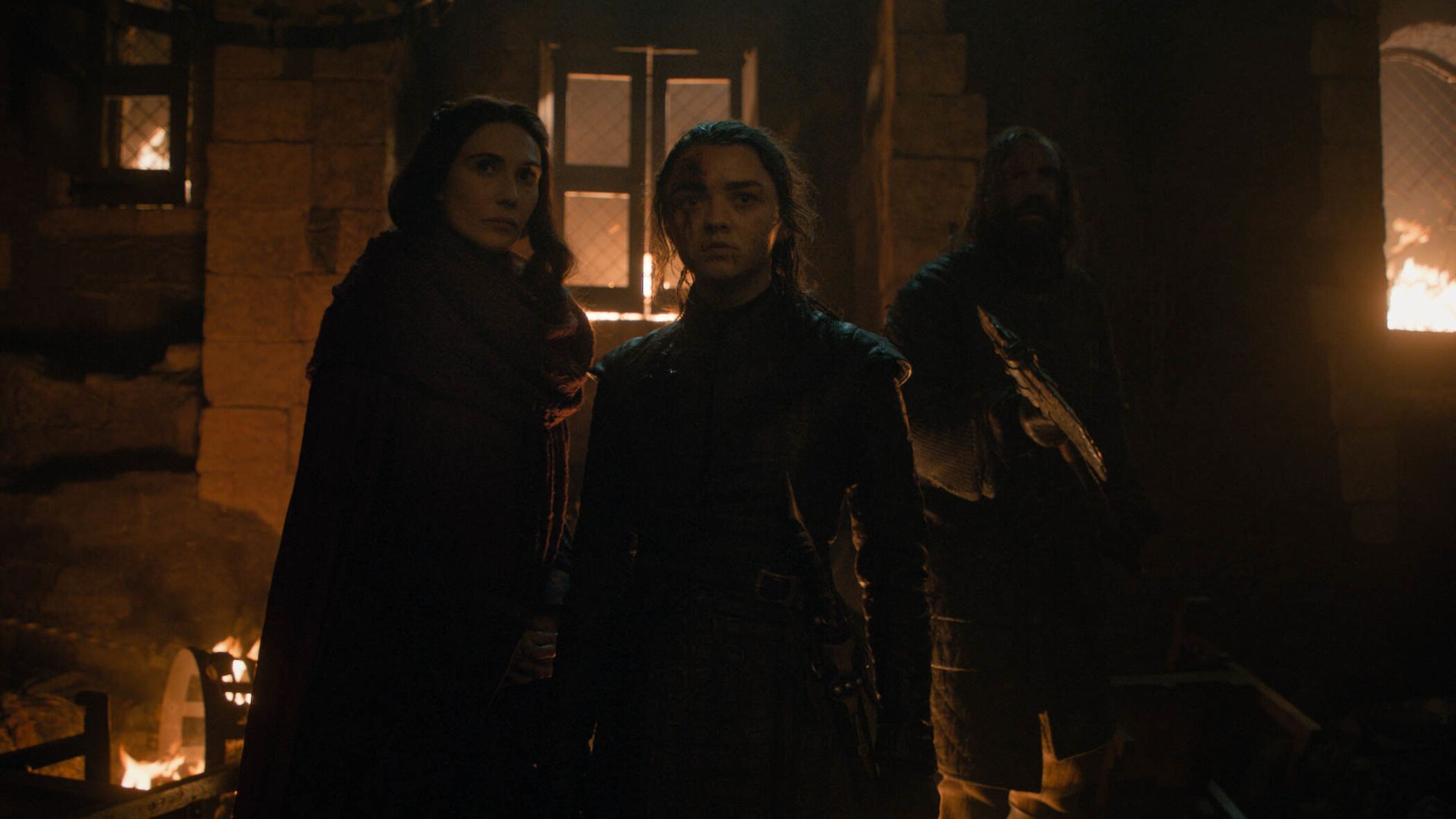
That the Night King and the army of the dead are now so summarily defeated — and all within the space of an hour, give or take — also seems to render nearly every analysis of the story’s mysteries… pointless.
What’s the Three-Eyed Raven’s plan? Doesn’t matter.
Who is Azor Ahai, the prince(ss) who was promised? Who knows? Arya, maybe?
What’s the significance of the crypts of Winterfell, and why must there always be a Stark in Winterfell, as the legends say? Uh… no reason, apparently.
What was the purpose of the direwolves, whom the Starks found in the show’s pilot episode, and who have been so important to their survival in the books but nearly non-existent on the show? Nothing, I guess?
How did Davos, a man with no combat skills, survive an invasion of the undead without a scratch? Eh, who cares?
In a way, “The Long Night” seems to be a rebuttal of what we all thought Game of Thrones is actually about.
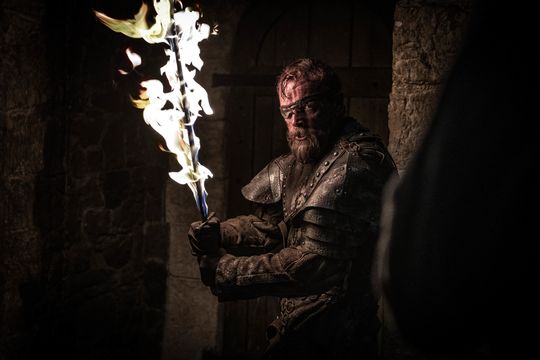
“Look at all these secrets, mysteries, and prophecies! Look at all this history, these complexities, this unpredictability! See how ornate and complicated this story is? See how rewarding it is to try and outwit the storytellers and predict what’s going to happen next?”
This episode seems to imply that none of that really matters. That the threat we’ve been dreading for eight seasons is easily dispatched with a single knife to the chest. That Game of Thrones‘s defining subversion of genre tropes isn’t actually all that subversive after all — it’s really just a rearranging of the pieces to get to the same happy ending of a hero’s journey that we were initially told to stop expecting.
That’s what makes the conclusion of this episode so odd: if this were any other series, this ending would have felt immensely satisfying because the good guys won — and, all things considered, they won fairly easily. But only Game of Thrones can feel disappointing because the good guys won.
Maybe the show is punishing us for trying to outsmart it?
Or maybe the showrunners are so divorced from the show’s original spirit since they’re working without clearly-defined source material that they can no longer deliver on audience expectations because their own instincts are at odds with the complexities of the characters and themes they’re working with?
In the end, all I can think of is the old advice about writing mysteries: they fail when the audience is smarter than the characters. Unfortunately, I think we may have reached the stage in Game of Thrones where the characters are smarter than the writers — and that doesn’t bode well for the endgame.
More Game of Thrones Posts
This Lazy Dialogue Habit Is Making Game of Thrones Funny By Accident


4 Comments
Ersun Guven · April 30, 2019 at 1:53 am
The episode was good in sense of drama and atmosphere for the batthe – however it didn’t have the game of thrones spirit. While audience is watching GoT, a person gets a faint insight, or idea how it will continue, hooked up to some events with some key people around it – the story build it, binds you to that idea and direction – but the story has an adrupt stop with the death of the key person – so the audience is left in a limbo for a while before starting to build up something new with what they have at hand. But people loved that adrupt stop. I will not say “unexpected” because it would simplify GoT that what it was. The expectations were clevery built by the GoT story itself – which was shattered and leaving up space for other possibilities. I sincerely think that writers didn’t understand or interprete very well the concept of “unexpected” on GoT. they simply gathered internet user data, statistics and pinpoint the least expected outcome – which was distant from the mail plot that shaped those expectations. Battle was good to watch – but i must say that the real GoT spirit finished with Season 6.
Justin · April 30, 2019 at 10:12 am
Ersun, I think you may be right. There seems to be a difference between how GRRM writes setups and payoffs in his stories and how Weiss and Benioff are doing it on the show. To be fair, their job got a lot harder once they ran out of GRRM’s source material and they had to invent payoffs that they probably weren’t expecting to write by themselves. This could explain the difference in how much more satisfying the earlier twists felt than the more recent ones do.
Gil Batzri · April 29, 2019 at 11:24 pm
Evidence points to the ending portrayed being the ending of the NK by GRRM, There was a vanity fair article recently that has the relevant quotes.
GRRM has also stated he is far more interested in the political dynamics of the world than he is in the magic fight between death and life. That is one of the reasons the show is called “Game of Thrones”
I think you could argue the battle of Winterfell stood to destroy the Daenarys’ military advantage to make the final acts more compelling.
The manner of the NK’s defeat had been telegraphed almost every time we saw him. He declines to kill Jon at least three or 4 times in direct combat. He has an enormous unbeatable force, but does not use it to kill Bran, he walks in. His hubris about his superiority, and discounting of his foes in this battle was his undoing.
He didn’t fear the unknown, so he perished, because unlike Jon when he makes a poor decision he doesn’t get bailed out by someone else.
The narrative was sloppy (who sends cavalry out to lead the fight when you have a castle (unless you want them off the map?) It was amazing cinematography but insane tactical planning. But Arya has always been the one that was equipped to kill in this story, the one familiar and comfortable with death, she said it, the narrative said it, Mel said it in season 3 as well as today. When she said “not today” that was almost neon letters.
Jon is very rarely actually the hero in this story, if you examine things. The idea of him triumphing over the WWs when they knew his capabilities wasn’t going to happen. They teased it when he got close, The only way to defeat him was the way he was defeated.
The alternative, where the WWs conquer and overrun Winterfell and press south to KL is not what this show is about, as satisfying as seeing KL turned to a wasteland would be. This story is about the Thrones. And J & D & C fighting it out.
There are aspects of this episode that sucked, (ie I couldn’t see anything) but I think this is on target and in line with the eventual end of the books.
Justin · April 30, 2019 at 10:05 am
Gil, your point reminds me of Tyrion’s line from the previous episode, about intelligent people often underestimating their opponents. That seems to be what the Night King did here. I’m not sure his fatal hubris makes his (relatively) easy death any more satisfying, but at least it has something of a thematic parallel to the deaths of Ned, Robb, Joffrey, etc., who all seemed to be untouchable until they weren’t.